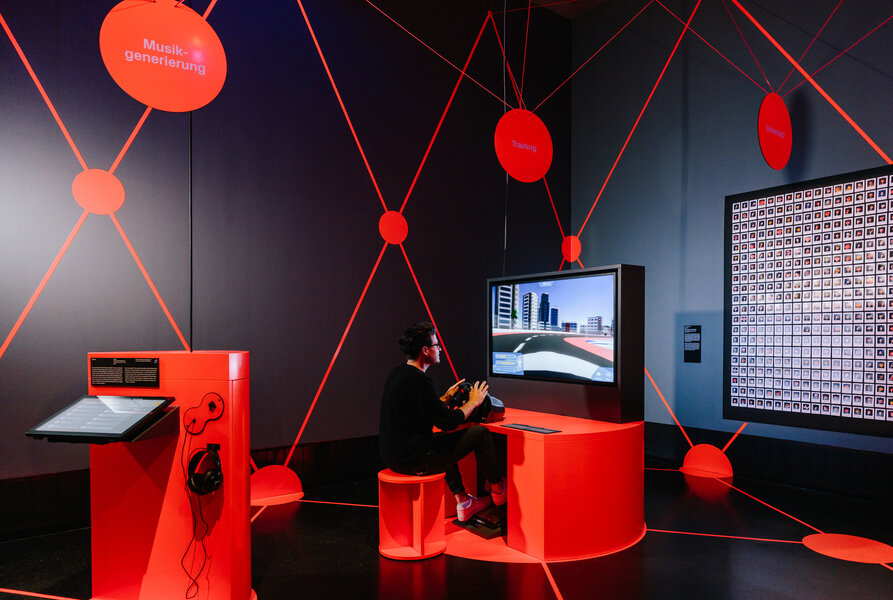Artificial Intelligence

© Oliver Killig
Few other topics are as controversial as artificial intelligence. AI is a technology that triggers both euphoria and skepticism because it affects us deeply in our humanity. On the one hand, the use of AI promises to make many complicated technical processes more efficient, safer and more convenient to complete - and to give us a more pleasant future. On the other AI also raises well-founded concerns: How reliable and neutral are automated processes, for example? According to which criteria does AI make which decision? Can our privacy and informational self-determination be protected from AI access? These questions also concern the scientists of the Barkhausen Institute. For this reason, we are participating in the exhibition of the Deutsches Hygiene-Museum Dresden
ARTIFICIAL INTELLIGENCE - Machine Learning Human Dreams
from 06. Nov 2021 - 06. Nov 2022
Especially for the exhibition, our Connected Robotics Lab develops an interactive exhibit, which makes artificial intelligence tangible for the visitors. Because there is a lot of potential in this new technology, its further development and application must be discussed critically. What is being researched and tested in research institutions and companies today has long since affected many areas of society. The new special exhibition at the Deutsches Hygiene-Museum highlights in particular how the use of AI systems will gradually change our understanding of everyday life, mobility, work, health and politics. There are numerous questions associated with this: What problems can we solve with AI at all? Which decisions do we want to place in the hands of AI systems? Where do we want to draw boundaries?
On 800 square meters of exhibition space, cultural-historical exhibits, scientific objects and contributions as well as audiovisual media provide differentiated insights into the current state of development of AI and how we deal with it. In addition, the perspectives of works by international contemporary artists* offer opportunities for reflection on the influence of this technology on our lives. The exhibition considers both the dreams of the past and the possibilities and impossibilities of our present, as well as the question of how we want to use artificial intelligence for ourselves in the future.


